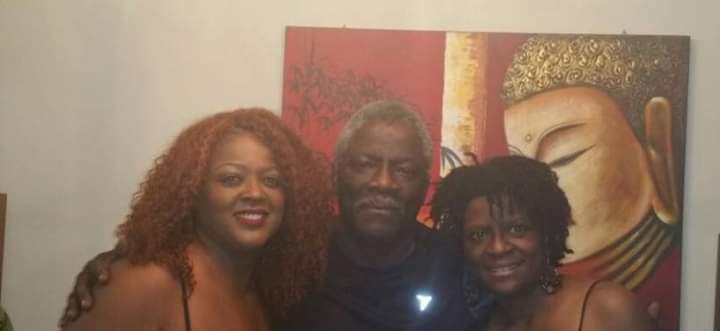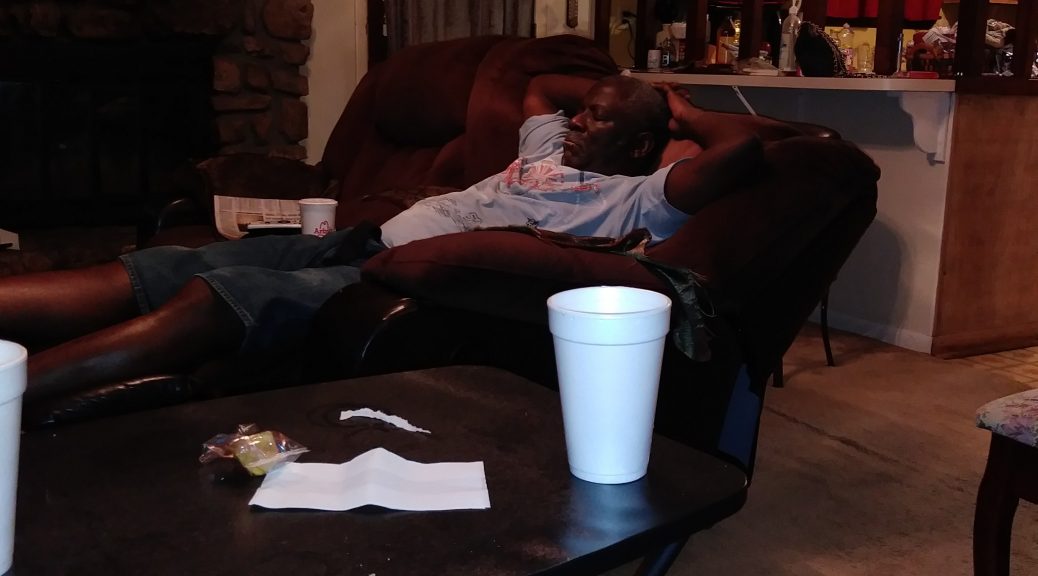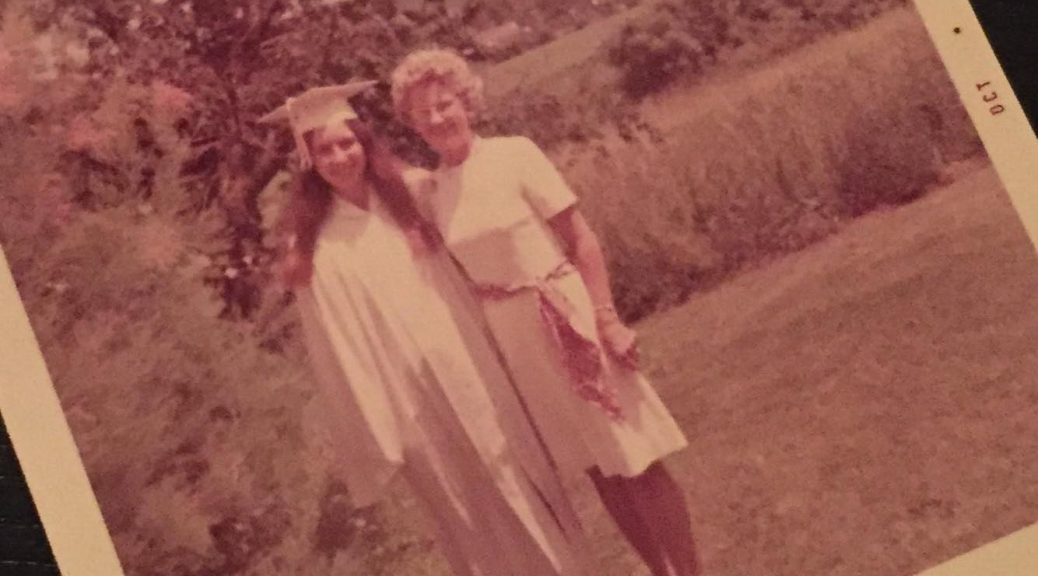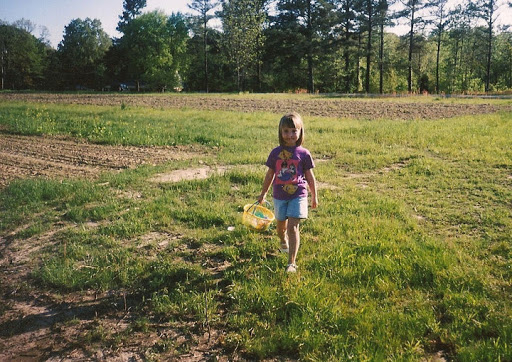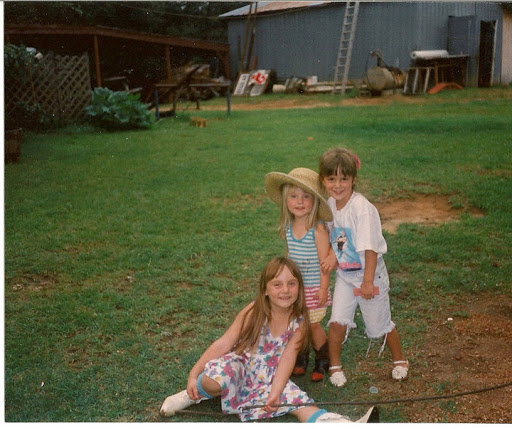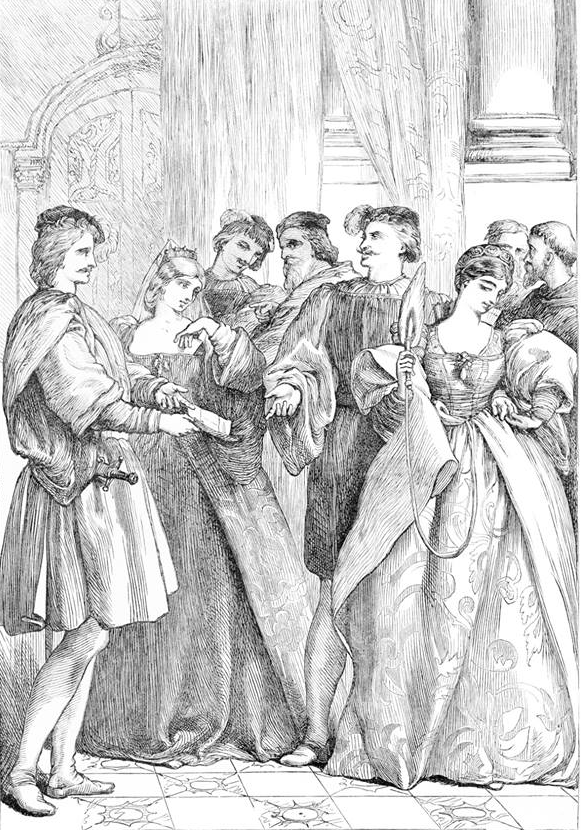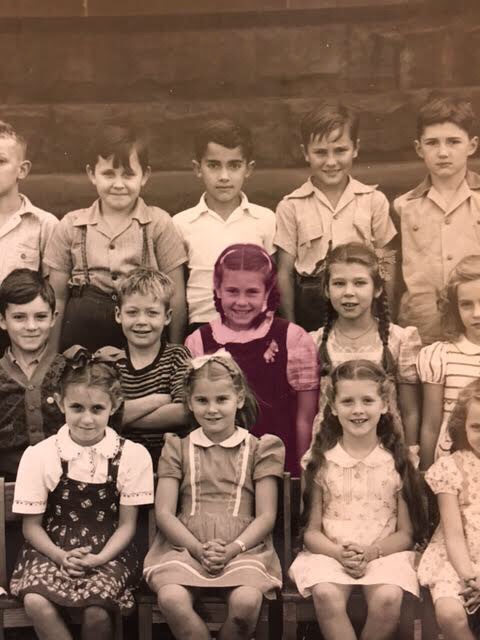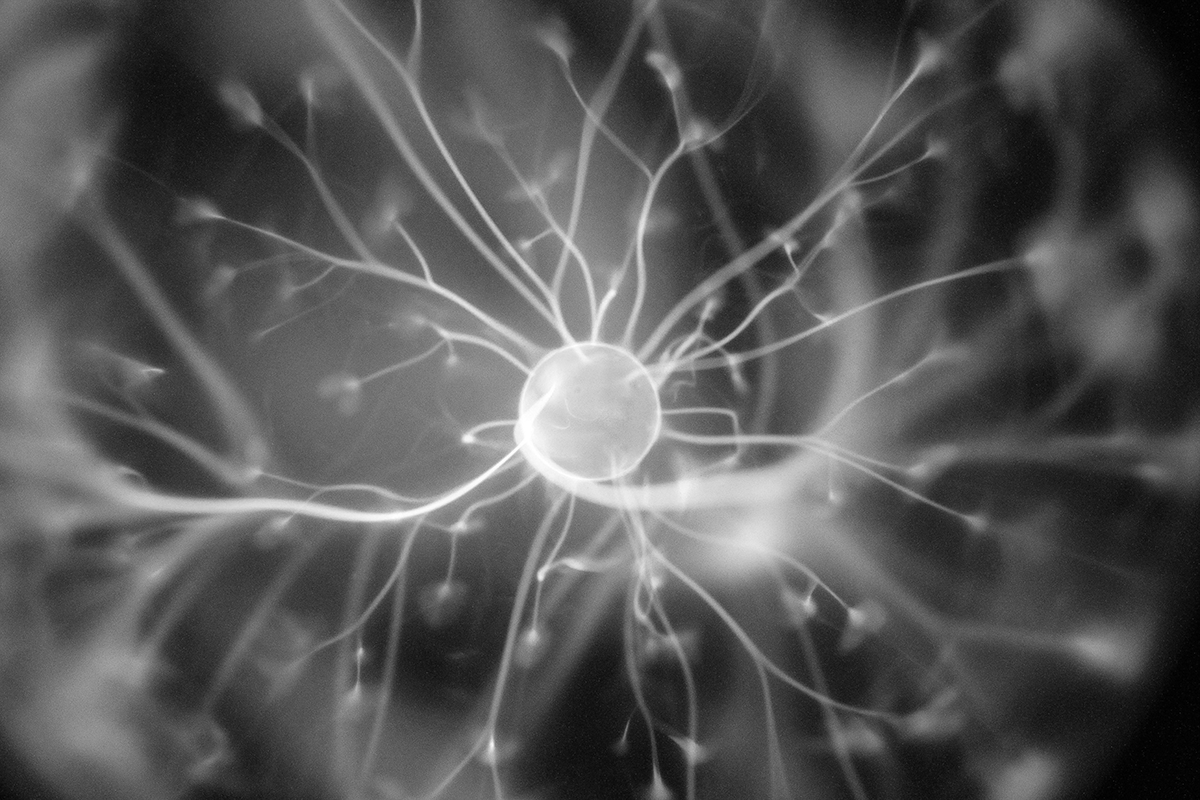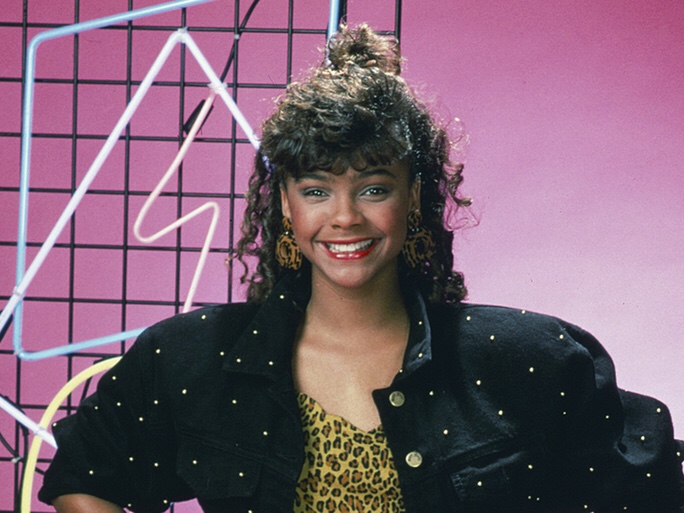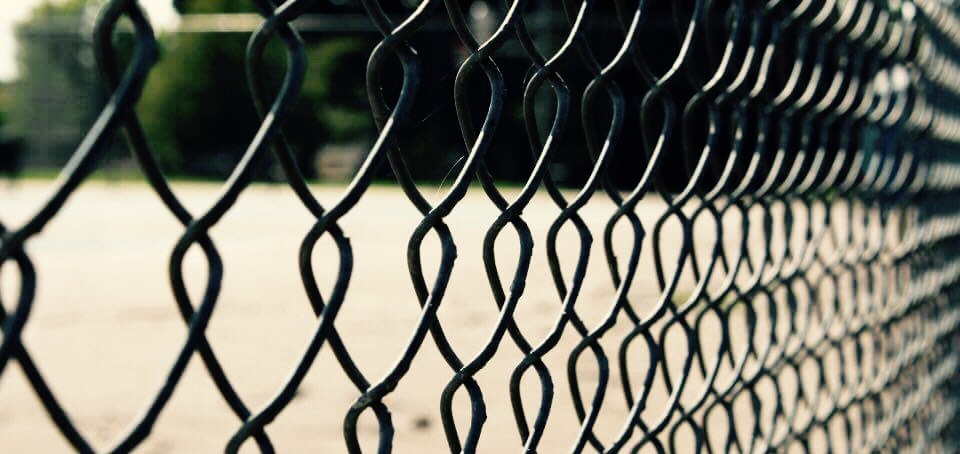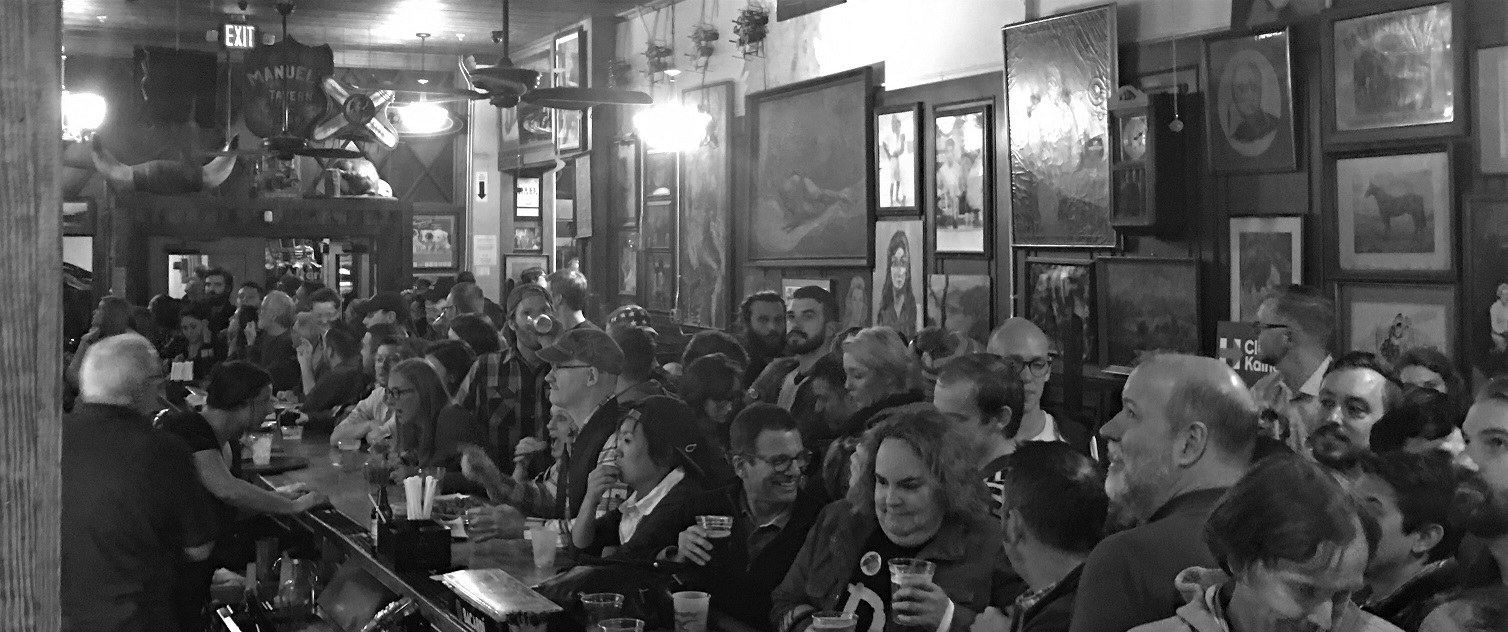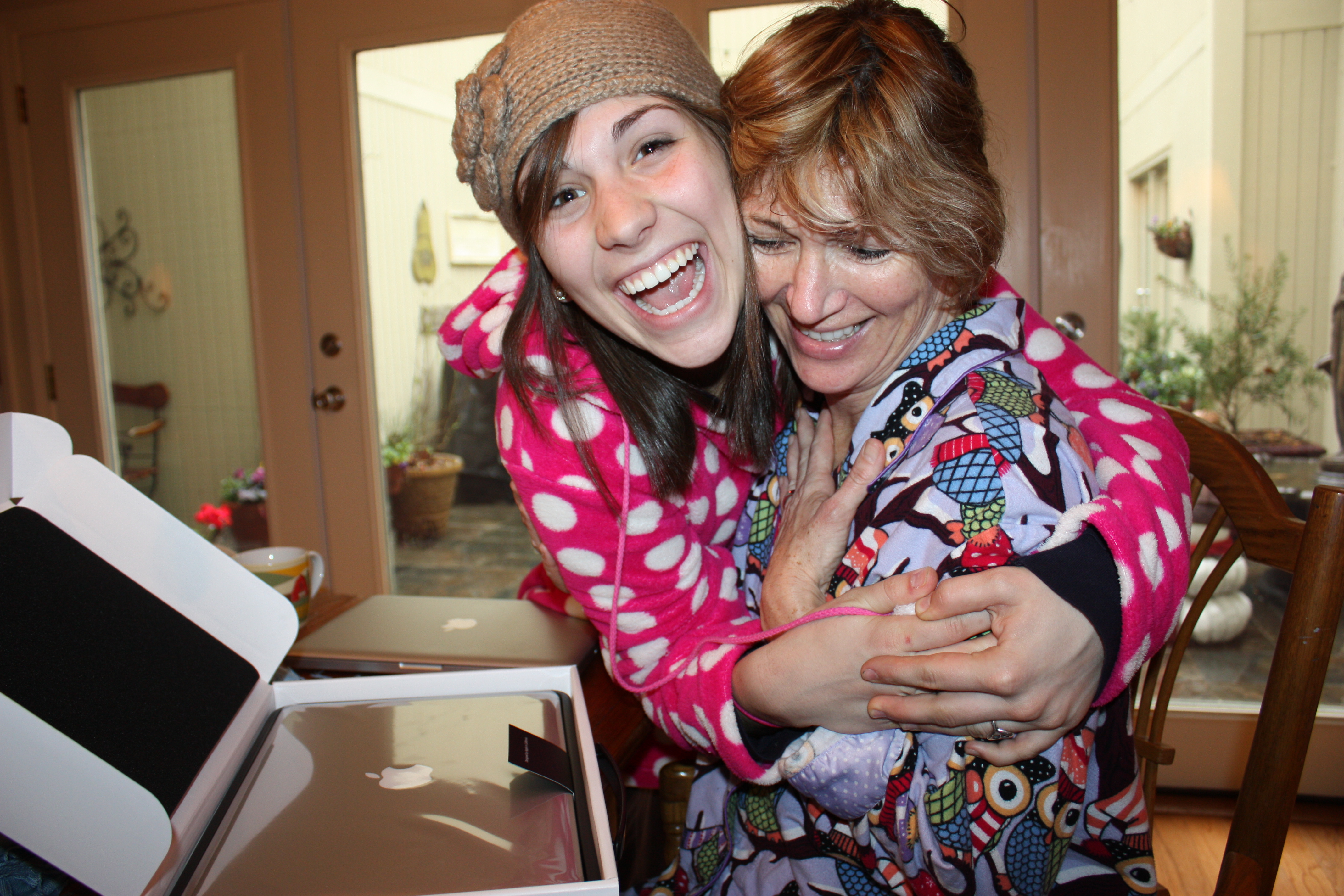By Aja Arnold
Okay. Here we go.
The polls began rolling in as crowd reactions indicated the wins for each candidate. Cheers and clinking glasses for Hillary and the Democrats and uproarious boos for Trump and the Grand Old Party. These indicators were the only way I could follow what was going on as I accumulated sales at an exponential rate and acquired what felt like 30 tables. As the evening progressed, I noticed the cheers became more staggered and the gaps between clamoring noise began to be filled with boos.
Just keep moving, I thought. You can’t worry about this right now. Stay focused. Remember, you don’t have your old tools anymore. This is all you, no mood enhancers. Just focus on doing a good job and being sober at the same time.
As a citizen, I was ready. I was ready to begin the process of erasing Donald Trump from my memory. I was ready for the media to get back to business and return to real issues instead of frantically fact-checking Trump’s tweets. I was ready for the election to be over and for political tensions in this country to take on the process of dissolve. I was ready to see another impervious glass ceiling shattered, to make another milestone in a step towards progress. I was ready to move forward.
As a recovering addict-alcoholic, I was ready. Closing in on eight months of sobriety, I was ready to show off and impress myself with my new methods. Old habits would have called for an array of things to satisfy a particular formula I spent years perfecting to ensure that I could work at an affable, supersonic state: a shot just about every hour on the hour, a forty bag stashed away in my bra for bathroom bumps, and a cup of coffee on the side with the occasional water. I was ready to take on such a momentous evening with full force and kick ass and do it sober.
Manuel’s Tavern was whirring in chaos — eruptive with camaraderie, glasses clinking in tones of celebration, and presumptive victorious vibes emanating in every room. I took a deep breath and hit the ground running. Women were strutting around sharply in their pantsuits and bold shades of lipstick as if to shout, “I’m with her!” Tables were all adorned with “Hillary for America” decor, beer taps flowing endlessly, bottles popping. Within an hour, I poured half a bottle of Bulleit Rye whiskey for my first table: a gay man and a lesbian, drinking their rye neat with a glass of ice on the side. They were a stylish pair — dapper, even — with their tweed blazers and bowler hats and brimming confidence. Their spry nature intimidated me. I felt not cool enough to build any sort of rapport with them, so I dropped their neat ryes and dashed, anticipating their need about every 10 to 15 minutes.
Even so, with all the decisive positivity and somewhat smug assurance in the room, it all seemed too good to be true. An impending sense of doom crept in my stomach. This was standard, though, for a naturally born-and-bred addict-alcoholic who had this creeping feeling for as long as she could remember about anything, all the time, ever. I couldn’t even begin to go down that rabbit hole. I couldn’t let the idea that Trump might become elected veer me out of focus.
What a fucking disaster that would be in here, could you imagine? All these people, drinking, gettin’ all riled up… if Trump were to win, the place might explode. All the polls have Hillary beating Trump by a landslide and these people were ready for their savored victory.
But it all just feels a liiiiiiittle too easy. If the election is rigged, they better have it so rigged we don’t accidentally end up with Trump as President. What if—
Table 43 motioned to me and raised their empty rocks glasses.
“Oh, another round of Bulleit? More ice, too? Got it.”
They nodded in approval and gave me a couple big thumbs up with gummy and jolly smiles. “Yaaaaaaas!” they called out. They must have been there for a couple hours already.
Every time I looked up from ringing in orders, I saw Trump’s victorious creepy eyes staring back at me. I kept moving as I watched the seats in Congress go to red in the majority.
Shit, what are we gonna do? He can’t become President, right? They wouldn’t let that happen. How the fuck did we get here? He said he grabs women’s pussies, for God’s sake. He called Mexicans rapists on fucking day one. He can barely manage a Twitter account. He’s a god damn Internet troll, and it’s really coming down to this, this fucking close? How is this happening right n— Oh, shit, table 10 needs another bottle of chardonnay. Oh, fuck, I forgot to bring two more beers to 40. Table 43 probably needs more Bulleit. Table 21 needs another cider, ring in that round for 32, oh and don’t forget food for table 41, that guy standing by the bathroom wants a Stella, and girl at 20 wants another Sweetwater. Get it together, don’t get weeded. Come on. Just keep moving.
The capacity of the building peaked and the staff lost any and all liberties to move between rooms without shouting and shoving people out of the way. There was no more handling this gracefully. People at the bar went from being cool and patient to being just flat-out, total dicks. Probably due to anxiety and stress, considering the rising conditions of the evening.
Ah, yes. You know that impending doom feeling? Welcome to my fucking life.
I watched as the bartenders became fed up, throwing their hands up as kegs blew left and right, servers shouting at one another, customers flailing their arms in our direction in desperate attempts to get a measly drink or two. I looked over at one server at the taps as a tear gently rolled down her sweltering cheek.
Amid all the disorder and disharmony, I was holding it together pretty well. I kept calm as I continued moving, weaving through the crowd using my smaller stature to my advantage as I wiggled through back and forth between the bar and the dining room with about eleven drinks in tow each trip. I’m doing it, I thought. I’m doing pretty good. And I’m sober! I haven’t even thought about drinking. For a moment, I felt relief and a sense of pride.
Okay, this isn’t so bad. It’s pretty crowded now, but nothing we can’t handle. Breathe. Inhale, one … two … three … four. Exhale, one … two … three … four. FUCK, HE JUST WON OHIO — shit, another round of Bulleit? Make them doubles? HAHA, I DON’T BLAME YOU. It’s okay, the Dems will come back, we still got the west coast to count. Ah, there we go, Oregon, California, Washington, oh and Hawaii, there’s some blue. Everyone is slowing their roll a little. Fuck, okay, I forgot about table 21, they look pissed. Well, as they can see it’s really fucking busy so they’re gonna have to wait. Shit, Trump just won Florida. Gahhhhhhhhh. Alright, alright, alright, keep calm. Inhale, one, two, three, four. Exhale, one, two, three, four. Wait, what did table 40 want again? Ugh, I’ll remember, it’ll come back to me. Just keep moving.
More people piled in just as I thought we couldn’t possibly fit another human. So many humans. Too many humans. Something needs to scourge the planet, a new epidemic.
Whatever, this is nothing. I’ve worked worse and busier nights than this and totally fucked up. Nothing will ever compare to the nightmare of a shift I worked bartending alone at another bar with no glasses, ice, or vodka to make a single vodka cranberry while I had about 50 people screaming at me. I can handle anything. I’ve had glasses thrown at me before, I’ve been cussed at, I’ve had my ass grabbed, I’ve been grabbed at while behind the bar—
As I was making my way to satisfy another round of drink orders, I felt someone grab my arm and pull me back. I turn around in annoyance and disgust to see Pinot Noir guy from table 10, bumbling around his table, warbling with his thickly coated wine glass in hand — the same one I had been refilling for him since 3:30 p.m. The stupid lush grinned at me with his hand still on my arm as he waved his glass at me in a charade of politeness in asking for another fill. His teeth were daubed and stained by layers of Pinot Noir and his eyes were muddled in inebriation. Clearly, he knew not what he just awakened within me. My skin boiled in a triggered sense of violation and I threw him a stare I did not miss exhibiting. With this I saw him shirk back, drunkenly orbiting the table back towards his chair.
Oof, how hard it was to not explode.
“Of course you can have another glass of wine,” I said, as calmly as I could. “But you don’t need to grab me for that.” I let out a little hiss of air, for a girl needs to breathe. I moved along, holding in my thoughts, piling them in along with all the others in my mental pressurized gas tank of emotional turmoil.
How fucking dare he touch me? Fucking people, man. He must think he’s the only fucking person in here who needs a drink. Fucking typical, a straight white man getting whatever the fuck he wants. If I was a dude, he never would have thought about touching me. And this is just going to be okay, isn’t it? This is how our country is going to be run. Donald Trump is going to be our next fucking president, isn’t he? In a few years men will just be grabbing pussies and calling it “presidential.” I can’t fucking believe it. Fuck him, fuck everything, fuck everyone, he’s getting his wine last.
That was it. It was official. I had lost my cool and entered into “fuck you” territory, a very uncomfortable and risky place to be in while sober. Everything in my undeniable nature was nerving me to take a fucking drink and say “fuck it dude” and get tanked later. I begrudgingly returned to table 10 with a glass of wine to hear Pinot Noir guy’s gauche attempts at an apology. He continued this throughout the rest of the night, more and more profusely as he continued to get sloshed. Meanwhile, I stewed. He left me a 40 percent tip at the end of the night. Even so, this did nothing to smooth over my inner seething.
Inhale, onetwothreefour. Exhale, onetwothreefour. Shit, more boos? What happened now? Whatever, just keep moving.
Down the rabbit hole I went as I began to feel drowned by all the people waving and panicking for more drinks. Stuck with no resolve, no means of sedation, I listened to more polls roll in and our country started boiling red.
Okay, got beers for 42, that’s not even my fucking table, but whatever, got another bottle of chard for 10, need a pitcher for 32 — fuck, we’re out of pitchers, gah — okay so what they’ll just have to take two PBRs, okay another round of double Bulleit Rye neat for 43, oh awesome I just accidentally poured whiskey on my hand now I smell like whiskey, oof well THAT SMELLS REALLY COMFORTING. Jesus I didn’t even like to drink whiskey when I drank, oh COOL, Trump just won Alaska maybe I just need to pop some Ibuprofen and maybe this itching craving headache will go away if I do a shot of Coca-Cola and I can trick my brain into thinking I did a shot cause fuuuuccccck I want one, I need one, I deserve one.
I trekked my way back into the dining room and it felt much darker compared to when I had just left it ten minutes ago. Shit, the energy in here just dipped into, like, a deep dark realm of despair or something. Wait, why is it so dark in here? I looked over and saw two oversized frat boys slumped on the wall and saw they had turned off the light switch.
I made my way to the light switch and (sort of) gently nudged the two bros out of the way to adjust the lights back to their normal brightness. I turned back around to survey the room as I go to grab my tray of drinks and plan my route to deliver. The room looked really fucking grim, and even worse cause with the lights back up, I could see every line, every detail of grimace on everyone’s face.
Ew. This is just worse. This is so, so sad. And kind of gross. Should I just… turn the lights… back… down? No time, just keep moving.
I made my way through the newfound sorry state of the room. It was obvious: we weren’t at a party anymore. We were at a fucking wake. All I could do was keep moving. Despite what was happening or what I was feeling, I had a job to do, people to serve, money to make. Do people tip more generously when they feel like the world is ending? Guess I’m about to find out.
My eyes continued to graze upwards towards the big screen TV hovering above table 44 to see that our country had seemingly made its choice, with Michigan, Pennsylvania, and Wisconsin still too close to call. I reached to hand a young woman her pint of High Life as my eyes met hers, all tear-stained and bloodshot through the thin veil of fog of her square-rimmed glasses. She had been dethroned of her blazer, probably due to the rising heat that came in with the volcanic crowd. Her hair was now down and disheveled as if she had been pulling at it with brewing frustration, tugging in an unforgiving, sheering state of powerlessness. She clutched onto her beer silently as she gazed into its particle sum of carbonated bubbles. I wonder if she saw her reflection in her glass: an image of hopelessness and defeat, crumbled down to this, seeking the comfort of this one beer … Maybe with this I can wash away this pain. I wonder if that’s what she was thinking.
I paused and realized that reflection was just as much me as it was her, and that those thoughts were my thoughts. I had just experienced one of the most historical, distinct shifts in drinking history. I saw the drinking go from fun and celebratory to drinking out of fear and panic. Seeing the looks on everyone’s faces took me back to how my final drinking stage had been. That final shift from fun drinking to sad, scary, unwieldy drinking.
Yep. Just like that.
I wanted to stay at table 44 and hug sad High Life girl, because no one did that for me when I needed it most. But I had other thirsty eyes tugging at me. So, I kept moving. I continued to my other tables, making my way through the crowd’s various levels of fear, shock, and anger. My headspace was knocked fully out of its little protective bubble I had worked so hard to manifest. My eyes teared up slightly and I reached to rub my eyes and caught a nice, big whiff of the Bulleit Rye that had fallen on my wrist earlier. It’s warmth ensued my nasal cavity as I thought of doom and forest fires.
What the fuck am I doing? I thought. What is the fucking point?
In an effort to prevent a full-on existential breakdown, I continued to work and decided it was time to close out my tables, everyone holding their drunk and weighted heads in their hands in total despair.
Inhaleonetwothreefour. Exhaleonetwothreefour. Just. Keep. Moving. Almost done.
Finally, it was 3:30 a.m., and I sat weary in booth number seven in Manuel’s Tavern as I stared at my phone’s alert in disbelief. This was the reality we now lived in: Donald Trump was just elected as the 45th president of the United States. This wasn’t like the nightmares I’d been having months prior.
Inhale… One… two… three… four. Exhale… one… two… thr-… omg.
And then it hit me.
I have to live through a Trump presidency sober.
The last time I saw him he was serrating the ivory tusks of man, rocking
Rocking back and forth in his throne, shaking his head violently
With bursts of anguish in perpetual combustion as guilt rode him like a saddle
Years of inventory have shown he was no decent man worthy of such statutes
But alas, on top of the hill he sat
